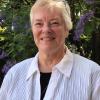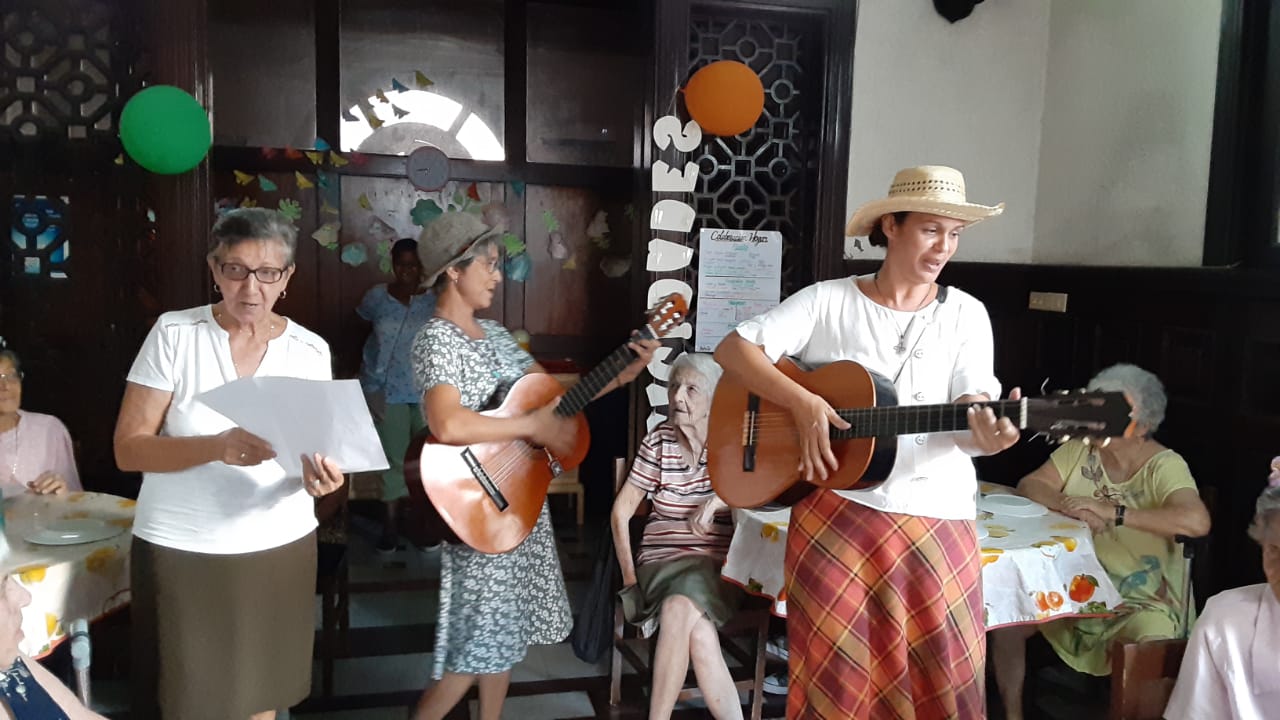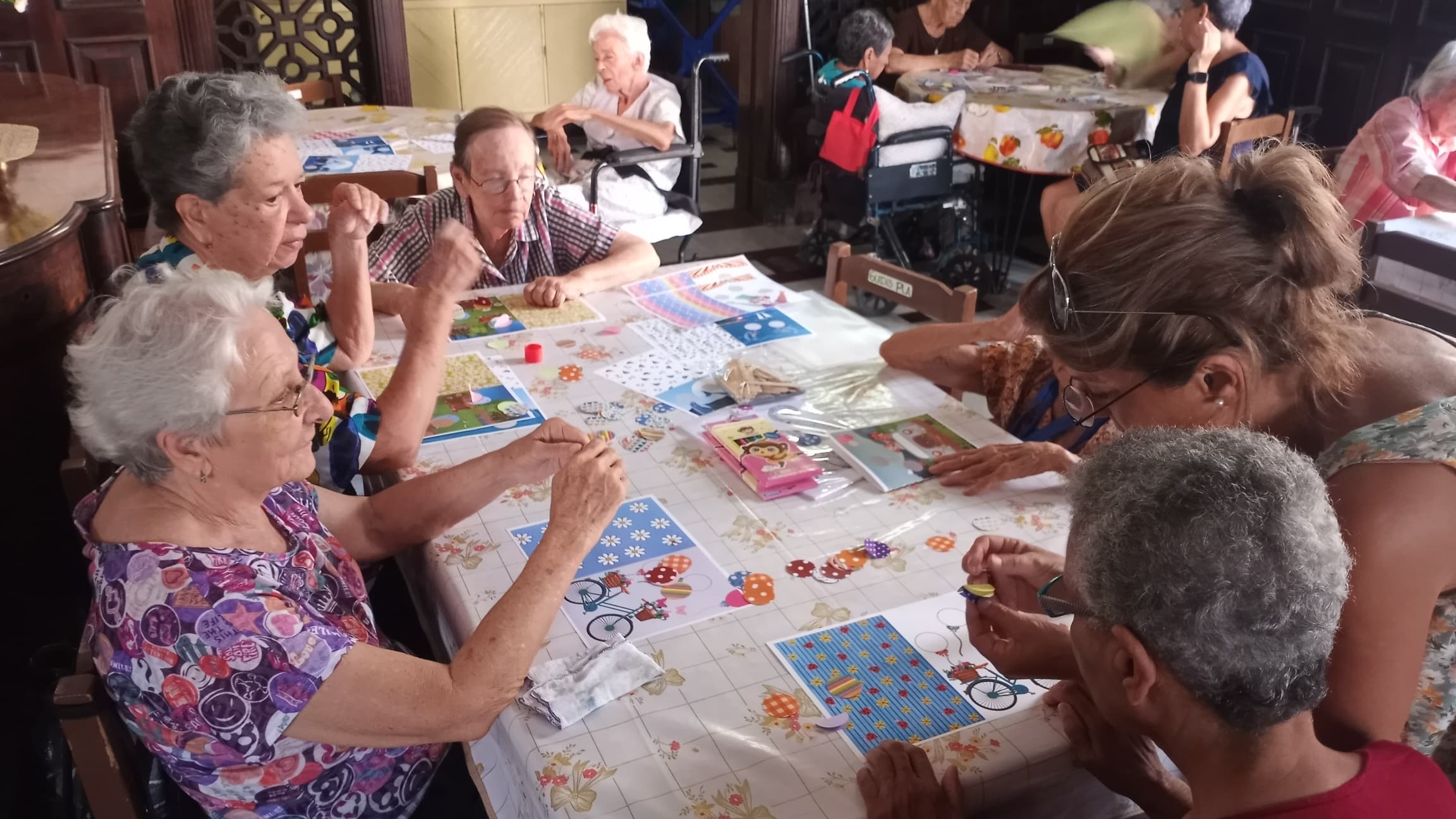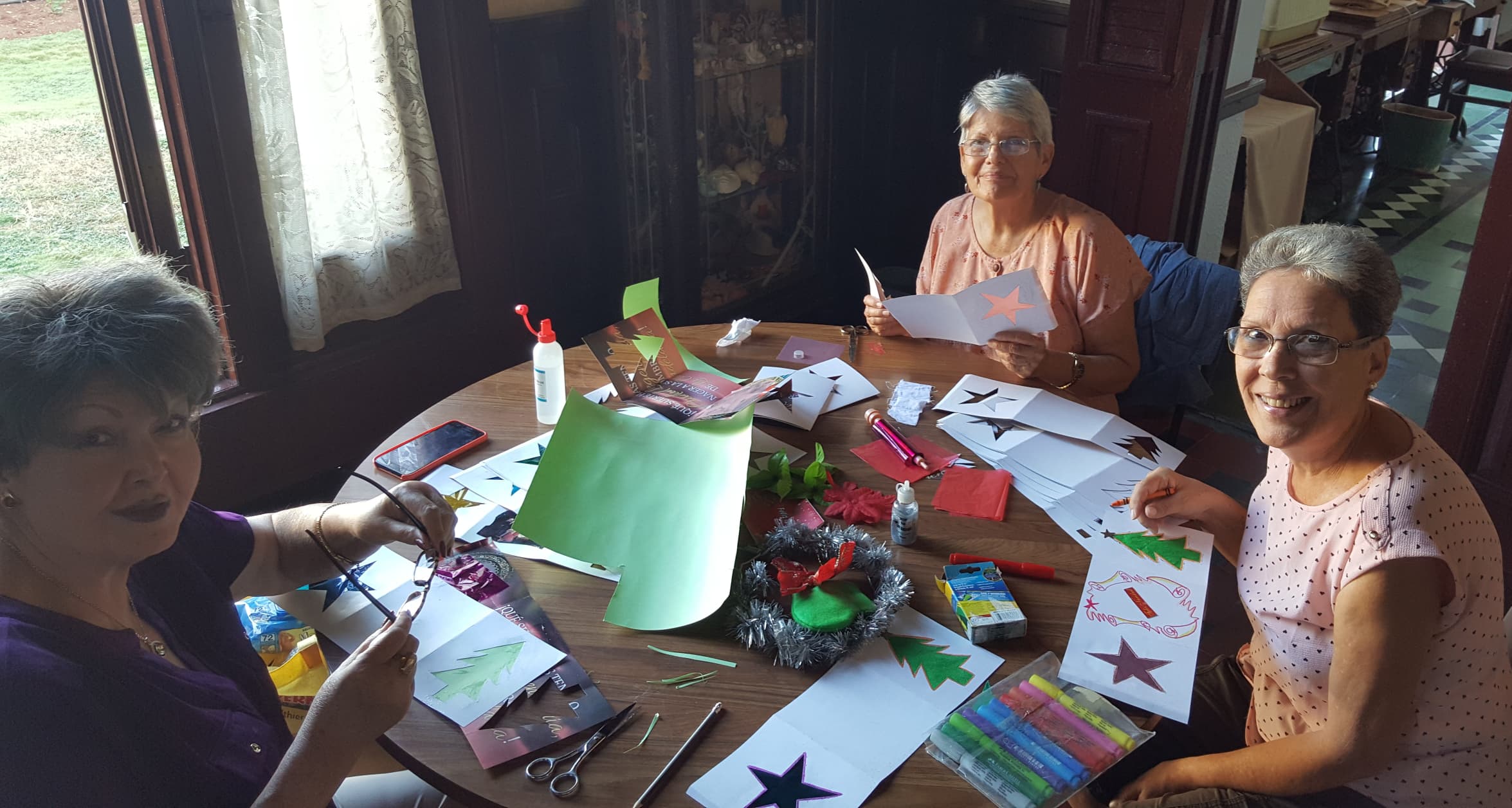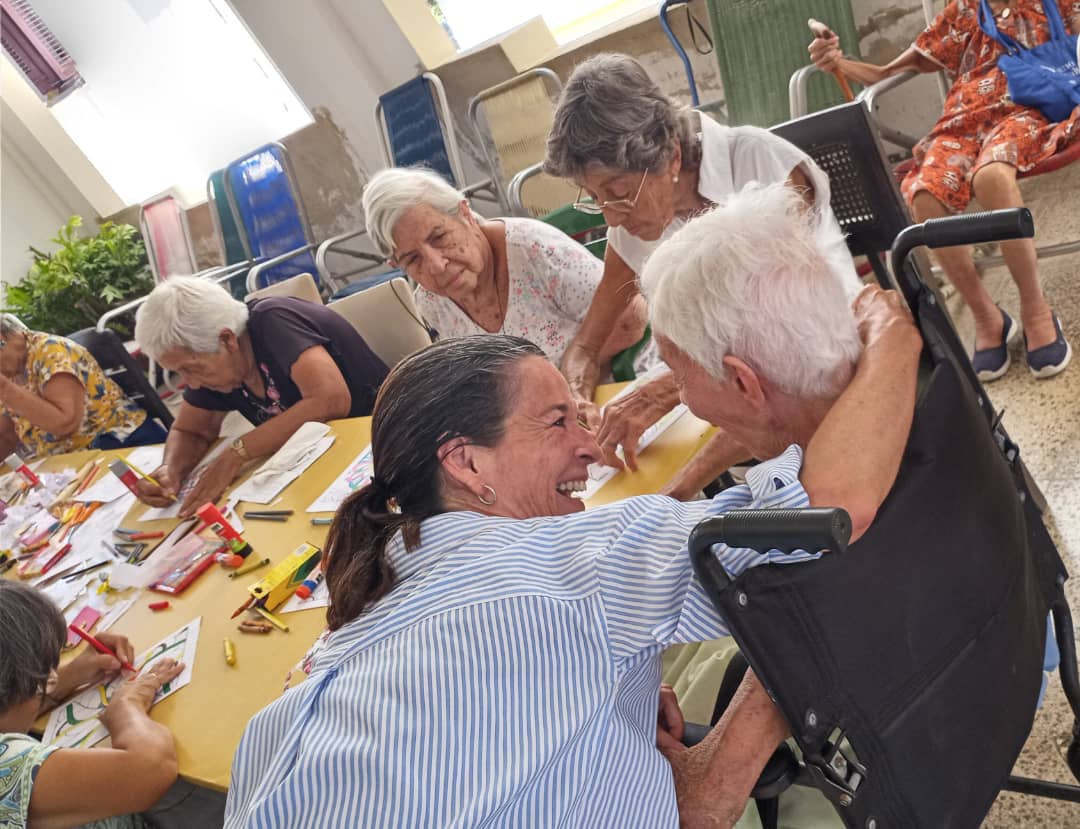
At the Siervas de San José Home for the Elderly in Havana, Cuba, the sisters manage a space that dignifies the women they care for, providing holistic and loving attention. (Courtesy of Siervas de San José Home for the Elderly)
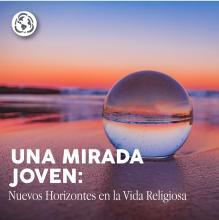
One of the charismatic elements that animates our life and mission as Servants of St. Joseph is work in favor of women. We promote, strengthen and create spaces where we can share life, promote the formation and empowerment of women, communicate knowledge, and enrich each other.
One of the congregational projects that has women at its center is the Siervas de San José Home for the Elderly, which is located in Havana, Cuba. The home is a space that provides dignity for older women. It is a commitment to improve their quality of life through holistic care and work done with love.
Attention to elders, on the part of the sisters and the workers, unites us in a shared mission. It is this common mission that opens spaces for dialogue and formation, and makes it possible to share the charism with the people with whom we work.
Although our mission in the church is not specifically to accompany older adults, this project allows us to work in favor of the dignity of older women, offering them a space of welcome, affection and respect. At the same time, we raise awareness among both those who work with us and those who visit us, and we open a space for hope at a time when older adults are often forgotten.
'As a young person who is just beginning religious life, I learn from all these examples to see life as a precious gift that has been given to us, and appreciate more intensely in elders': Sr. Daylenis Lara Rodríguez
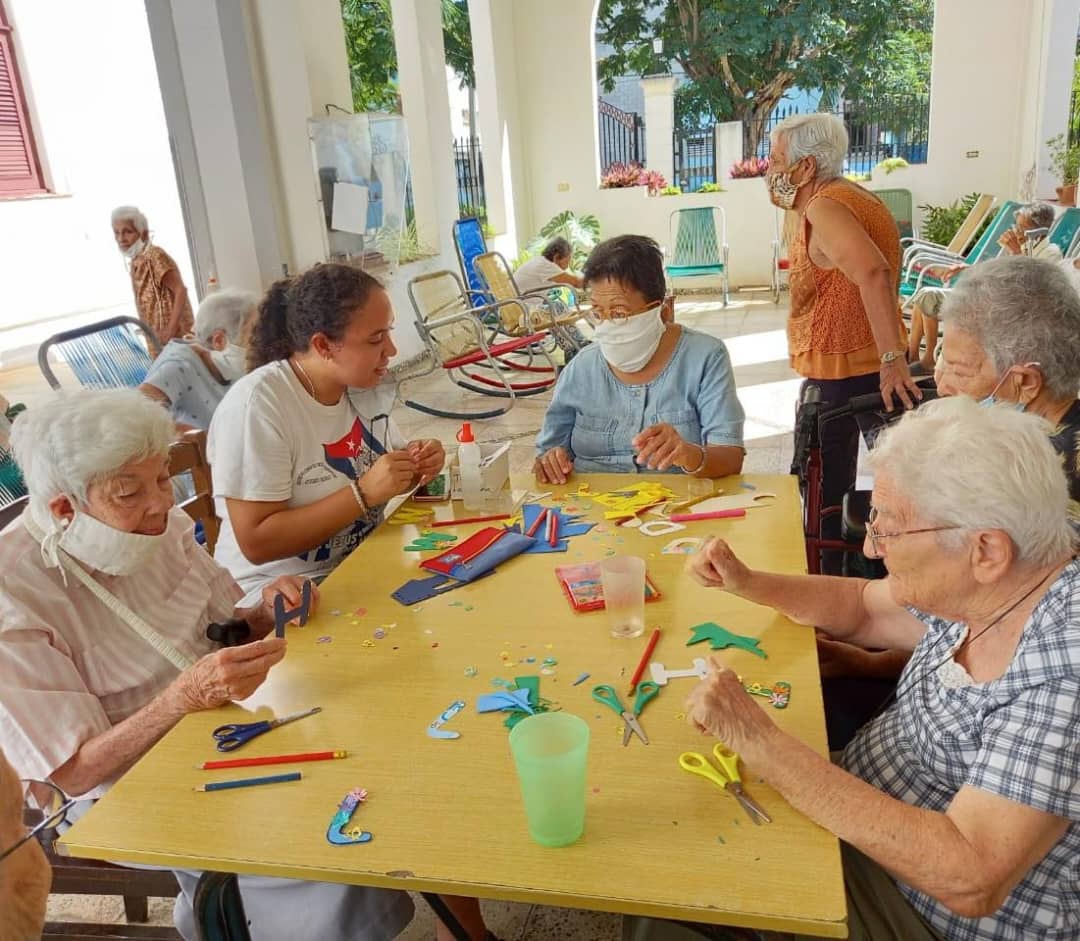
Sister Lara, in a white blouse, leads a craft activity with the women residents during her visit to the Siervas de San José Home for the Elderly in Havana, Cuba. (Courtesy of Siervas de San José Home for the Elderly)
Sr. María Francisca Pedrido (Paquita), a Spaniard, has been involved in the mission in Cuba for about 37 years. Working in the home is significant for her because it involves entering sacred ground, listening, accompanying, and helping alongside others, fostering the formation of a large family that has as its model and example the Holy Family of Nazareth.
It means knowing, accepting and counting on each person with his or her gifts and frailties, and enjoying the affection, tenderness and wisdom that years and life give to us. It also means accepting pain and separation, and offering one's life to the Lord, which is a rich experience that teaches the true value and meaning of being alive. Praying and working, living and recreating together, the home desired by everyone is an essential part of their experience.
She believes that, in Cuban society, one of the greatest needs today is attention to and care for elders, who, for various reasons, are left alone and very needy in all aspects of life: familial, social, religious and economic.
In the Home for the Elderly, the sisters offer personalized attention to the most delicate in health, and have a group plan to respond to the most urgent needs, such as medicines, medical care, physical exercise, and a rich and varied diet. In addition, they include psycho-pedagogical training, cultural and recreational activities, daily prayer, Sunday Mass, and regular meetings with other homes and residences at important times such as Christmas and Easter. They are open to collaboration offered by groups of volunteers, and encourage participation of elders in household chores according to each one’s potential, fostering self-esteem, dignity, harmonious living, appreciation of diversity, and communion.
'In the Home for the Elderly, the sisters offer personalized attention to the most delicate in health, and have a group plan to respond to the most urgent needs, such as medicines, medical care, physical exercise, and a rich and varied diet': Sr. Daylenis Lara Rodríguez
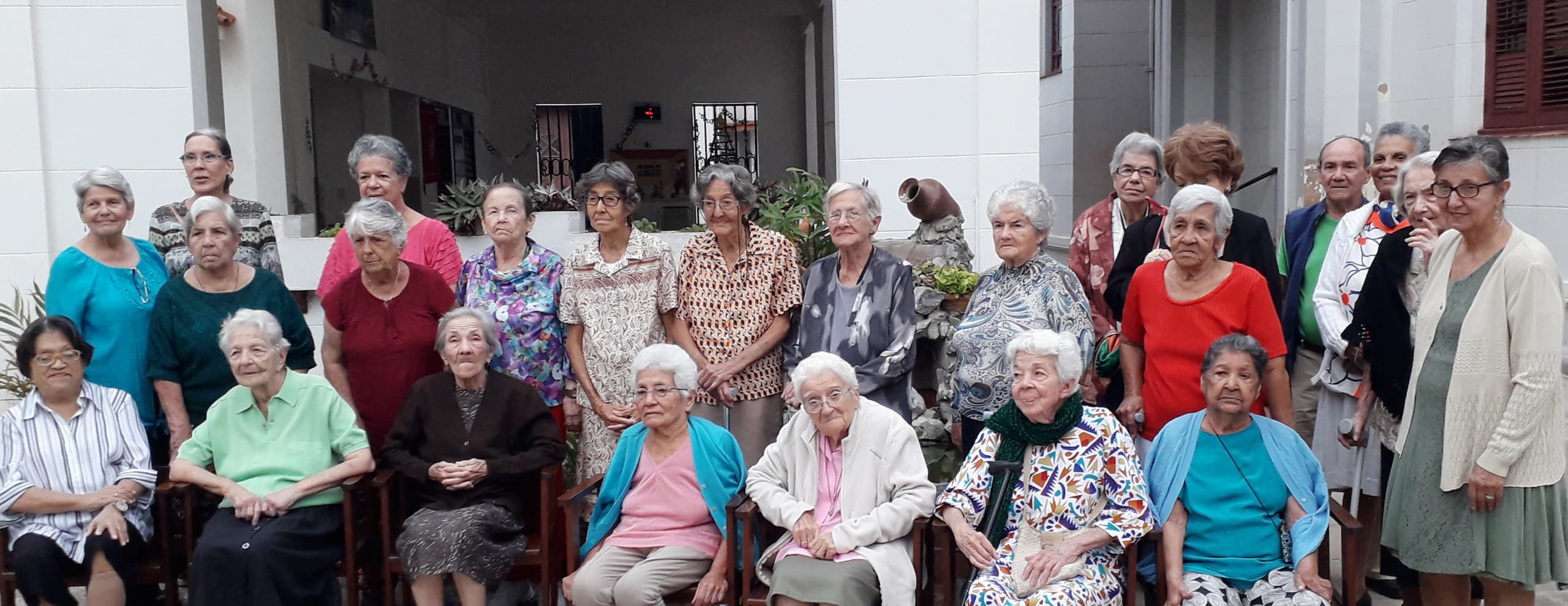
A group of elder residents are pictured at the Siervas de San José Home for the Elderly in Havana, Cuba. (Courtesy of Siervas de San José Home for the Elderly)
Nerio Rodríguez Rodríguez has worked with the sisters for about thirteen years. When asked how working in the home has transformed his life and his perspective on adult women, he responded that working with the sisters in the home has been an interesting experience. He came from another world, and upon encountering this one he felt as if he was "reset," discovering a new way of working and understanding the purpose and goal of his work. This experience has transformed him for the better, giving him a sense of belonging.
Nerio is there to do good, to do his work thinking of the people who need him, and aware that any mistake has repercussions for the present and the future. He considers this place as a home, and the sisters as blood sisters. Although working in the home is challenging, it gives him peace of mind to know that he is improving the lives of older women who have dedicated their lives to their families and society, even though they have often not been appreciated. Nerio feels that his work, with its small contribution, is making their lives a little better. He describes this experience as walking with the older women and the sisters, living together in this house that is God's house.
Míriam Martínez, an adult who benefited from this project, told me that, for her, living in the home since she joined almost two years ago, has signified a renewed approach to the church. Although she never stopped praying and was not a practicing Catholic for various reasons, she was a Catholic in faith and heart. In the home, she has relearned what it is like to live in a Catholic community, drawing closer to God and strengthening her faith, which continues to be fundamental for her.
She feels that, despite having almost no family, she has begun a new life with people she did not know, many different from her in customs and ways of appreciating life; but this pales in comparison to what is essential. Living in the home has given her peace in every way, both material and spiritual, since she used to live alone. She has also gotten to know the sisters intimately, admiring them from day one, as she observed them clean, serve tables, and wash dishes, which she had never considered before. Miriam said, "I feel good here; I don't feel that I lack family! That's what I can say, I feel very happy."
For me, the time spent working in the home, although not very long, has been very significant. It has helped me to open myself more and more to life, joy, and hope. As a young person who is just beginning religious life, I learn from all these examples to see life as a precious gift that has been given to us, and appreciate more intensely in elders. It is a gift to listen to their stories, to sense all the good they have done and the mark they have left on so many people. Joy, which is born deep within and cannot be taken away by external factors, manifests itself in them as an innocent and sincere smile.
It fills me with hope to imagine a different society and a different humanity where we all live as one big family, and the elderly have an important place. I imagine a society where the dignity of all is respected, where every care and task is done with love, and a job well done is a place for common growth.
Today, the day of Sts. Joachim and Anne, is an invitation to work for the dignity of the elderly; to open the doors of our hearts to welcome, respect, and care for them; and to allow ourselves to be challenged by the grandmothers and grandfathers with whom we share our journey.

